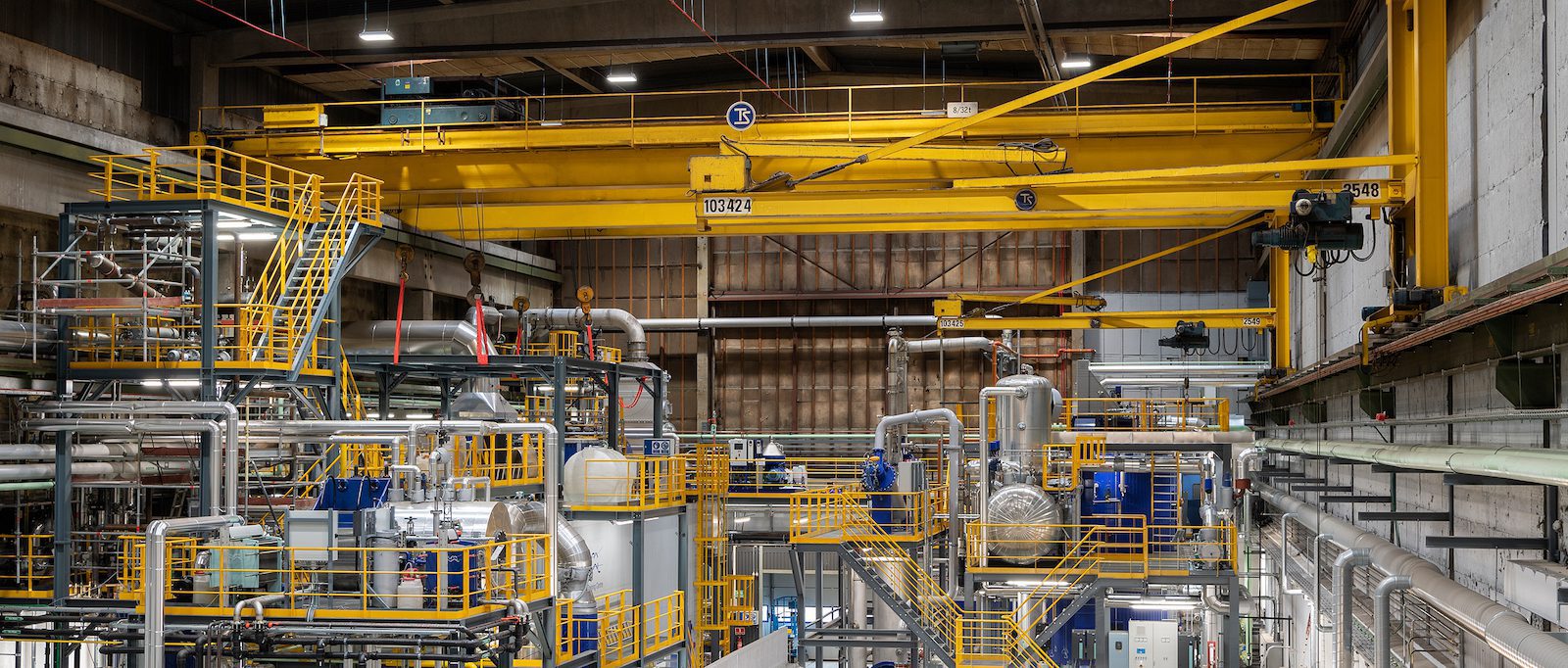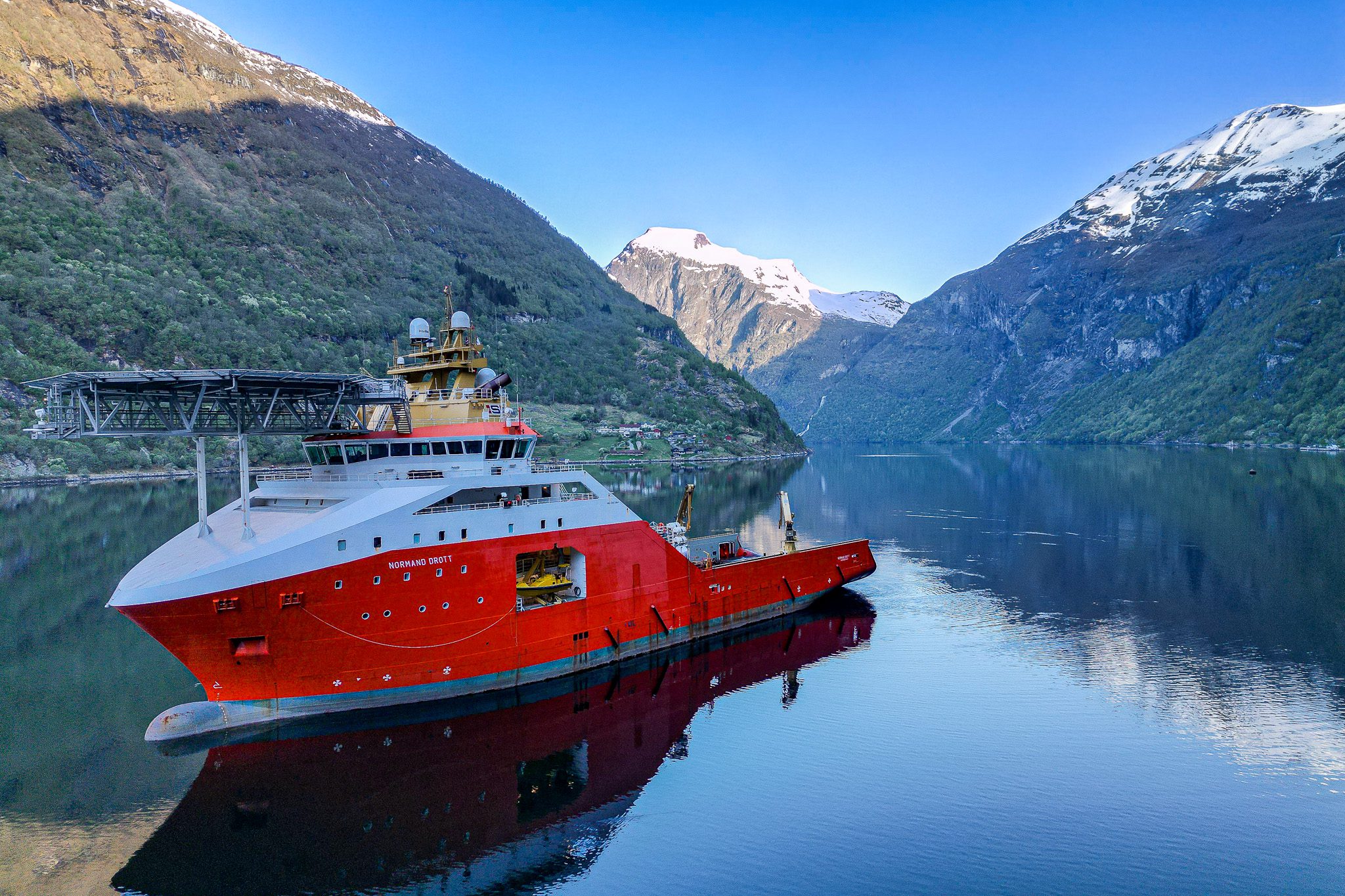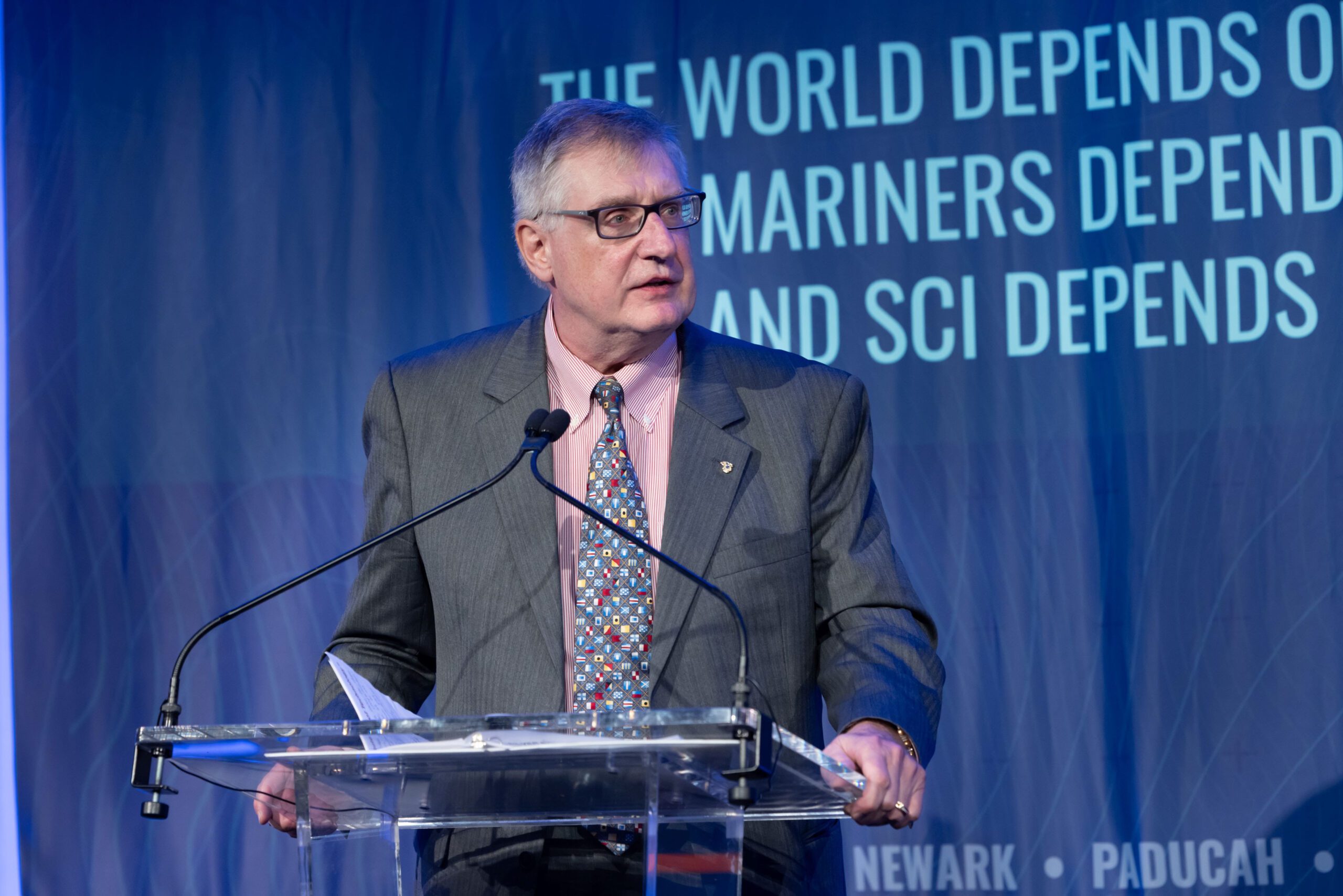Press Release – Alfa Laval, DTU Energy, Haldor Topsoe, Svitzer and the Mærsk Mc-Kinney Møller Center for Zero Carbon Shipping are entering into a joint project to accelerate the development of solid oxide fuel cell (SOFC) technology. Funded by a grant from Danish EUDP (Energy Technology Development and Demonstration Program), the partners will pursue a high-efficiency solution with the scalability to support marine industry decarbonization.
The project, SOFC4Maritime, will target optimal utilization of future green fuels via application of SOFCs for power production on marine vessels. When based on fuels such as ammonia, hydrogen or bio-methane, SOFCs hold great promise as a replacement for today’s fossil fuels. Such alternatives are needed in the maritime industry, which must transition to greener power over just a few decades.
By electrochemically converting fuel into electricity, SOFCs can potentially produce power with higher efficiency than internal combustion engines running on the same fuel – without creating polluting emissions or particulates. Ammonia-based SOFCs are especially attractive, since ammonia can be produced in large scale using renewable electricity and no biomass resource. The research will therefore have ammonia-based SOFCs as its starting point.
Alfa Laval, a marine supplier with more than a century of expertise, will head the development initiative. Haldor Topsoe will provide the underlying SOFC stack technology, while DTU Energy will support in system layout and component testing. Svitzer will bring a shipowner perspective and the Mærsk McKinney Møller Center for Zero Carbon Shipping will ensure a broad industry overview, end-to-end analysis of various energy pathways and a detailed techno-economic analysis.
“Addressing shipping’s environmental challenges – and climate change in particular – will require a diverse range of strong technologies. By partnering with fellow marine industry experts, we can investigate the possibilities and bring them to fruition in time to make a difference.” Sameer Kalra, President, Alfa Laval Marine Division
“We are proud to contribute with our competences within SOFC technology and ammonia as a marine fuel in order to reduce carbon emissions from shipping. This is an urgent goal in combatting climate change.” Kim Grøn Knudsen, Chief Strategy & Innovation Officer, Haldor Topsoe
“Our know-how in the performance and testing of SOFC technology and components will be utilized well in this important project aimed at a carbon-free shipping industry.” Søren Linderoth, Head of Department, DTU Energy
“We are eager to pursue this project, which will provide essential information and enhance the feasibility of future pathways to zero carbon shipping based on SOFCs.” Bo Cerup-Simonsen, CEO, Mærsk Mc-Kinney Møller Center for Zero Carbon Shipping
Shipping’s road map to decarbonization
Global shipping accounts for around 3% of global carbon emissions, a share that is likely to increase as other industries tackle climate emissions in the coming decades.
Achieving the long-term target of decarbonization requires new fuel types and systemic change within the industry. Shipping is globally regulated, which provides an opportunity to secure broad-based adoption of new technology and fuels. However, new legislation will be needed to enable the transition.
To accelerate the development of viable technologies, a coordinated effort within applied research is needed across the entire supply chain. Industry leaders play a critical role in ensuring that laboratory research is successfully matured to scalable solutions that match shipping needs.
This is Alfa Laval
Alfa Laval is active in the areas of Energy, Marine, and Food & Water, offering its expertise, products, and service to a wide range of industries in some 100 countries. The company is committed to optimizing processes, creating responsible growth, and driving progress – always going the extra mile to support customers in achieving their business goals and sustainability targets.
Alfa Laval’s innovative technologies are dedicated to purifying, refining, and reusing materials, promoting more responsible use of natural resources. They contribute to improved energy efficiency and heat recovery, better water treatment, and reduced emissions. Thereby, Alfa Laval is not only accelerating success for its customers, but also for people and the planet. Making the world better, every day. It’s all about Advancing better™.
Alfa Laval has 17,500 employees. Annual sales in 2019 were SEK 46.5 billion (approx. EUR 4.4 billion). The company is listed on Nasdaq OMX.
www.alfalaval.com
About DTU Energy
The Department of Energy Conversion and Storage is focused on education, research, and development within functional materials and their application in sustainable energy technologies such as fuel-, electrolysis- and solar cells. The department has a strong focus on transferring new knowledge to the application of the researched technologies. For more information please visit: www.energy.dtu.dk
About Haldor Topsoe
Haldor Topsoe is a global leader in supply of catalysts, technology, and services to the chemical and refining industries. Topsoe aims to be the global leader within carbon emission reduction technologies by 2024. By perfecting chemistry for a better world, we enable our customers to succeed in the transition towards renewable energy. Topsoe is headquartered in Denmark and serves customers around the globe. In 2019, our revenue was approximately DKK 6 billion, and we employ more than 2,300 employees. www.topsoe.com
About the Mærsk Mc-Kinney Møller Center for Zero Carbon Shipping
The Mærsk Mc-Kinney Møller Center for Zero Carbon Shipping is a not-for-profit independent research and development center, it works across the maritime sector with industry, academia and authorities to facilitate the development and implementation of new energy technologies; build confidence in new concepts and their supply chains; and accelerate the transition by defining and maturing viable strategic pathways to the required systemic change. The Center is placed in Copenhagen but work with partners globally.
The founding partners behind this initiative are American Bureau of Shipping, A.P. Moller – Maersk, Cargill, MAN Energy Solutions, Mitsubishi Heavy Industries, NYK Line and Siemens Energy. Several additional partners are expected to join the Center over the coming months.
The center is made possible by a start-up donation of DKK 400m by the A.P. Møller Foundation and legally established in October 2020.
For more information go to www.zerocarbonshipping.comwww.zerocarbonshipping.com
Tags:
Sign up for our newsletter

 Join The Club
Join The Club











